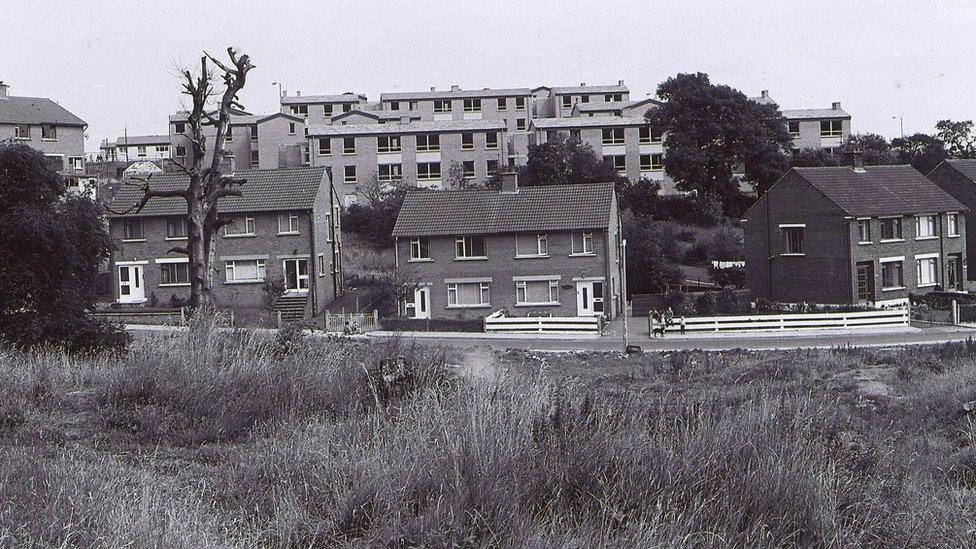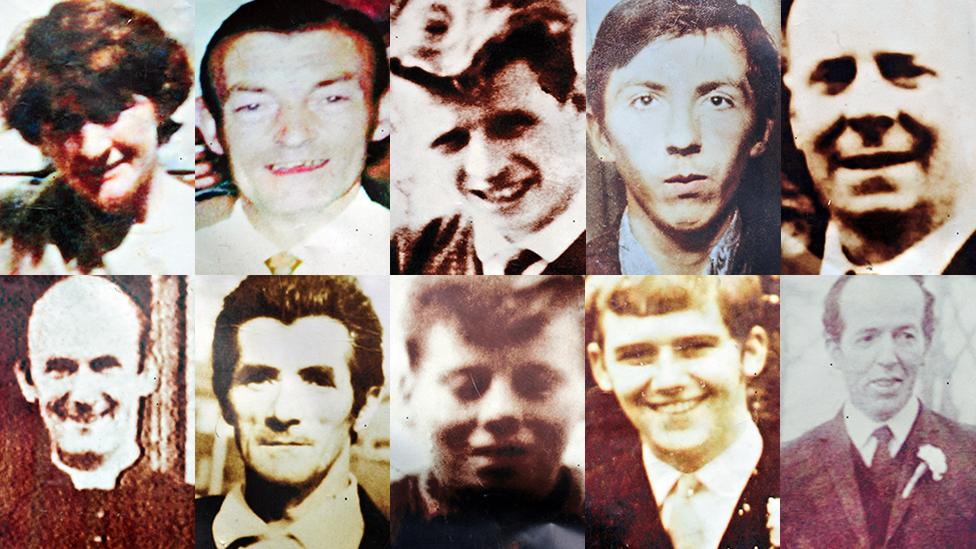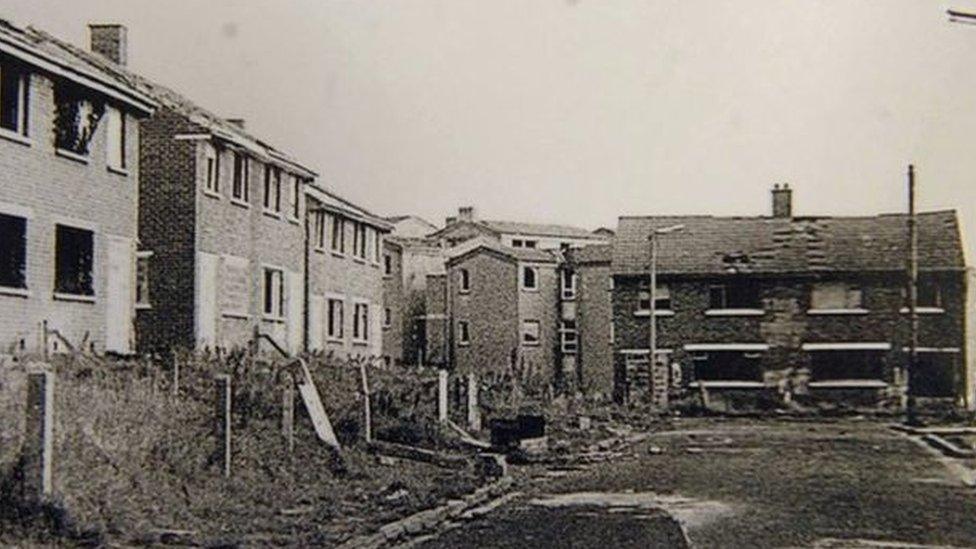Ballymurphy inquest: Witness was caught in 'hail of bullets'
- Published

Fr Hugh Mullan and Francis Quinn were shot at Springfield Park
A former student from England has told the Ballymurphy Inquest that being caught in a hail of bullets was the "10 most frightening minutes of my life."
Steve Pittam was giving evidence to the inquest that is examining the deaths of 10 people at Ballymurphy.
In 1971, Mr Pittam was a 21-year-old undergraduate student at Nottingham University.
He was volunteering with agencies working in the New Barnsley and Moyard areas that summer.
He had obtained the placement as part of his degree, but also because he was "interested in non-violence and pacifism", he said.
In court, he described himself as "a long-haired student at the time."
He helped run children's summer activities and was involved in designing and building an adventure playground.
On 9th August, he went with a Palestinian student colleague to try and rescue a wounded man near Springfield Park, but was unable to because of a sustained period of gunfire in their direction.

Nine men and a woman were killed in Ballymurphy in August 1971
He was unsure where the gunfire was coming from and did not see any gunmen or soldiers firing, he said.
Although both men were wearing Red Cross armbands, he said the firing continued and they eventually had to give up the attempt.
Mr Pittam told the inquest that the events of August 1971, internment and the following unrest, were a political disaster, with widespread alienation of Catholic communities from the authorities.
He also felt it had been a military disaster too.
"If there was to be a stronger recruitment method for the IRA I don't think you could have designed one." he said.

Who were the victims?
Father Hugh Mullan, 38, and Francis Quinn, 19, were shot in an area of open ground behind Springfield Park
Daniel Teggart, 44, Joan Connolly, 44, Noel Phillips, 19, and Joseph Murphy, 41, were shot near the Henry Taggart Army base near Springfield Park
John Laverty, 20, and Joseph Corr, 43, were shot at separate points at the top of Whiterock Road
Edward Doherty, 31, was shot at the corner of Brittons Parade and Whiterock Road
John McKerr, 49, was shot outside the old Corpus Christi Parish

He told the court that he was regularly stopped and beaten up by soldiers from the Parachute Regiment in the following days, being punched and struck with rifle butts.
Because he was English, he said, some accused him of being "a traitor living with the enemy".
"It was almost that there was a sense of subjugation going on." He added.
Mr Pittam returned to the area after he graduated in 1972 and worked there for a further two years, sponsored by the Quakers of Nottingham.
He later described helping to carry a wounded man from the area by taking him through gardens and over fences, because the army wouldn't allow an ambulance into the area.
The court heard an article written by Mr Pittam in a 1971 edition of "Peace News" about his observations in the days immediately following the introduction of internment.
Steve Pittam later rose to become a senior figure in the Joseph Rowntree Charitable Trust before his retirement in 2012.
He recalled being invited by a friend two nights later to have dinner in the Stranmillis area and go to a play at the Lyric Theatre.
He told the court that he went along and was struck by the contrast with the area of west Belfast.
"It made me realise, even within Belfast, that people didn't know what was happening only a few miles away. It was such a divided community."
The inquest continues.
- Published26 February 2019

- Published11 February 2019
